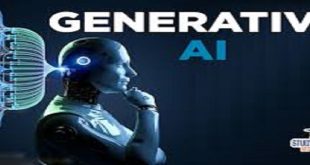Quantum Computing: The sunrise of a brand new technology in technology
With the discovery of quantum computing, it promises to bring a revolution to the technological world. While classical computer systems process information using bits, which are binary and can both be a 0 or a 1, quantum computer systems make use of quantum bits or “qubits.”
These qubits exist in a superposition of states, meaning that they can be both zero and 1 at the same time, allowing the quantum computers to execute complicated computations exponentially faster than their counterpart, the classical computer system.
This capability places quantum computing as a game-changing discovery that has the potential to revolutionize everything from cryptography and artificial intelligence to pharmaceutical discovery and material science.
this chapter provides a detailed discussion on quantum computing technology, its principles, applications, challenges, and the impact it can have on different aspects of life.
introduction to Quantum Computing: a new Paradigm
Quantum computing is based on the principles of quantum mechanics-a branch of physics that describes the behavior of debris on the subatomic stage. In contrast to classical computing, which is based mostly on the deterministic nature of classical physics,
quantum computing draws upon three key quantum concepts: superposition, entanglement, and interference.
Superposition
While, in classical computing, a bit represents one out of two possible states, namely zero or 1, quantum computing brings in the concept of superposition: a qubit can exist in a mixture of each state at once.
This is considered to enable quantum computer systems to do many calculations in parallel with a great increase in their processing power compared with classical computer systems.
Let me illustrate it better by citing the example of a classic laptop that is instructed to find a way out of a maze. It would try each of the possible ways one after the other. Its counterpart, however, a quantum computer, through superposition, would have to travel all the ways at once and solve the problem much faster .
Entanglement
Entanglement is the other central quantum principle behind quantum computing. When two qubits become entangled, the state of one qubit depends on that of the other, irrespective of the distance between them.
This process, which Albert Einstein called “spooky action at a distance,” enables quantum computers to connect qubits in a way that drastically improves their computing powers.
Entangled qubits can send information out instantly, which, in effect makes quantum computers really green when solving certain types of complicated problems which may be intractable to the classical computer system.
Quantum Interference
Quantum interference highlights the right answers and mutes the wrong ones in quantum computing. Carefully orchestrating the interference patterns of qubits allows a quantum computer to direct its calculations toward strong solutions.
Manipulation of the quantum states of the particles, however, being a very fragile process, requires special control and is one of the great challenges facing quantum engineers today.
Applications of Quantum Computing: Potential Game-Changers
The unique capabilities of quantum computing have opened the door to a wide range of packages that might revolutionize industries. A few of the most promising include:
Cryptography
One of the more publicized uses of quantum computing is in the field of cryptography. The current cryptographic schemes, such as RSA, are dependent upon the problem of factoring large prime numbers-a task hard for a classical computer.
Quantum computer systems would instead rely on a set of rules called Shor’s set of rules and, as such, can easily break those cryptographic codes. It is a potential ability threat to various modern encryption schemes now in use to secure everything from online transactions to state secrets.
To combat this menace, quantum cryptography is an emerging area. Quantum cryptography, particularly in areas like quantum key distribution, promises to ensure unbreakable encryption through the laws of quantum mechanics.
Drug Discovery and materials science
Quantum computers are going to make a huge impact in the study of drug discovery and materials technology. Classical computation techniques can only simulate molecular interaction poorly, especially for complex molecules.
However, because quantum computers can process large volumes of information simultaneously, they will more than likely have to model molecular structure and interaction with great accuracy.
This could dramatically accelerate discovery in medication, redress, and materials up until now beyond the power of classical computing in simulation.
In materials science, quantum computer systems will, in theory, enable the design of substances with specific residences, including superconductors or new polymers. This would eventually have far-reaching consequences for industries that range from power storage to electronics.
Artificial Intelligence and Machine Learning
Quantum computing holds immense promise for the research and development of artificial intelligence and machine learning. Quantum algorithms for these areas involve extensive data processing and the solution of complex computations, which quantum computers are good at.
This means applying quantum algorithms will enable AI systems to process information much faster and more efficiently, becoming far more complex and powerful.
As an example, quantum computer systems should drastically enhance training times for machine learning fashions and allow faster development of AI programs such as natural language processing, image reputation, and self-dependent systems.
In addition, quantum-fatter optimization algorithms will be deployed to strengthen the choice-making approach of the AI system, that is likely to better the accuracy and reliability of the results given.
Optimization issues
It has been estimated that thousands of optimization problems in various fields like finance, logistics, and transportation abound. The typical optimization problem tries to find an optimal solution from a very large-sized set of viable solutions.
Indeed, it is the size of the possibility space that, many times, prevents classical computers from finding the best solution. Quantum computers manage to solve problems in optimization much more effectively, because they can process a few possibilities simultaneously.
Examples include the use of quantum computers for optimizing supply chains, reducing power consumption, and improving financial portfolio management. With the solving of some of these optimization problems, quantum computing is supposed to bring cost deposit substantial and prolonged efficiency along a range of industries.
Challenges and Barriers of Quantum Computing
With great potential comes a number of challenges and limitations, most of which have to be overcome before quantum computing could realize its full potential.
Errors Charges and Quantum Decoherence
One of the most huge challenges facing quantum computing is the intolerance of the error rate. Quantum computers are very sensitive to environmental noise, such as temperature fluctuations and electromagnetic interference, which could make them produce wrong calculations.
This phenomenon, called quantum decoherence, may destroy the fragile quantum states of qubits and lead to the wrong result.
To mitigate those errors, researchers are running on growing quantum errors correction strategies. However, enforcing those techniques is extremely complicated and requires a large quantity of extra qubits, which provides a vast engineering undertaking.
Scalability
Another central challenge is scalability: While small-scale quantum computers of a few qubits are realized, the extension of those experimental limitations to hundreds or millions of qubits is a challenge.
Large-scale fault-tolerant quantum computers are needed to be developed by building hardware and software technologies that keep the qubits from decohering while scaling up.
Hardware Limits
Quantum computing hardware is still in its early tiers of growth. Current quantum PC systems are confined to the diverse range of qubits they are able to support, and preserving the sensitive quantum states of those qubits requires extremely low temperatures—often near absolute zero.
Developing more robust and scalable hardware that could perform under much less stringent conditions is a key mission for the sphere.
Quantum Computing and the Future
Despite these challenges, the development of quantum computing is gathering pace. Major technology companies such as IBM, Google, and Microsoft, along with numerous start-ups, are seriously investing in quantum computing research and development.
Governments worldwide also are paying attention to the strategic significance of quantum computing and are investing in projects to develop the technology.
The most striking quantum computing milestones occurred in 2019, when Google was said to achieve a “quantum supremacy.” That is the point at which a quantum computer will be able to solve some problems that, in all likelihood, are beyond the reach of classical computers.
Although the achievement is still at dispute in the scientific world, the technology is firmly on the bleeding edge, showing in no uncertain terms the electricity of quantum computing.
Quantum computing will, in the future, massively disrupt whole sectors ranging from healthcare and pharmaceuticals, to finance, to manufacturing. Also, as the generations keep maturing, enablements on applications like climate modeling may happen, supply chain optimizations, and even space explorations.
Conclusion
Quantum computing is a breakthrough into the way we approach computation and problem-solving. Its ability to process huge volumes of information in parallel and solve complex problems that are beyond the reach of classical computer systems opens ways for new innovation and insights.
Though most of the challenges remain untraversed, the progress so far achieved promises to make quantum computing a necessary feature of the future development of technology and society. And as we keep investigating quantum computing, so, too,
would be standing on the cusp of another interesting era: one where the impossible becomes possible, and the very boundaries of computation are redefined.
Quantum computing promises to transform industries, enrich lives, and solve some of the most important problems of our times, on this new technology. The journey has just started, but the destination promises to be super.


